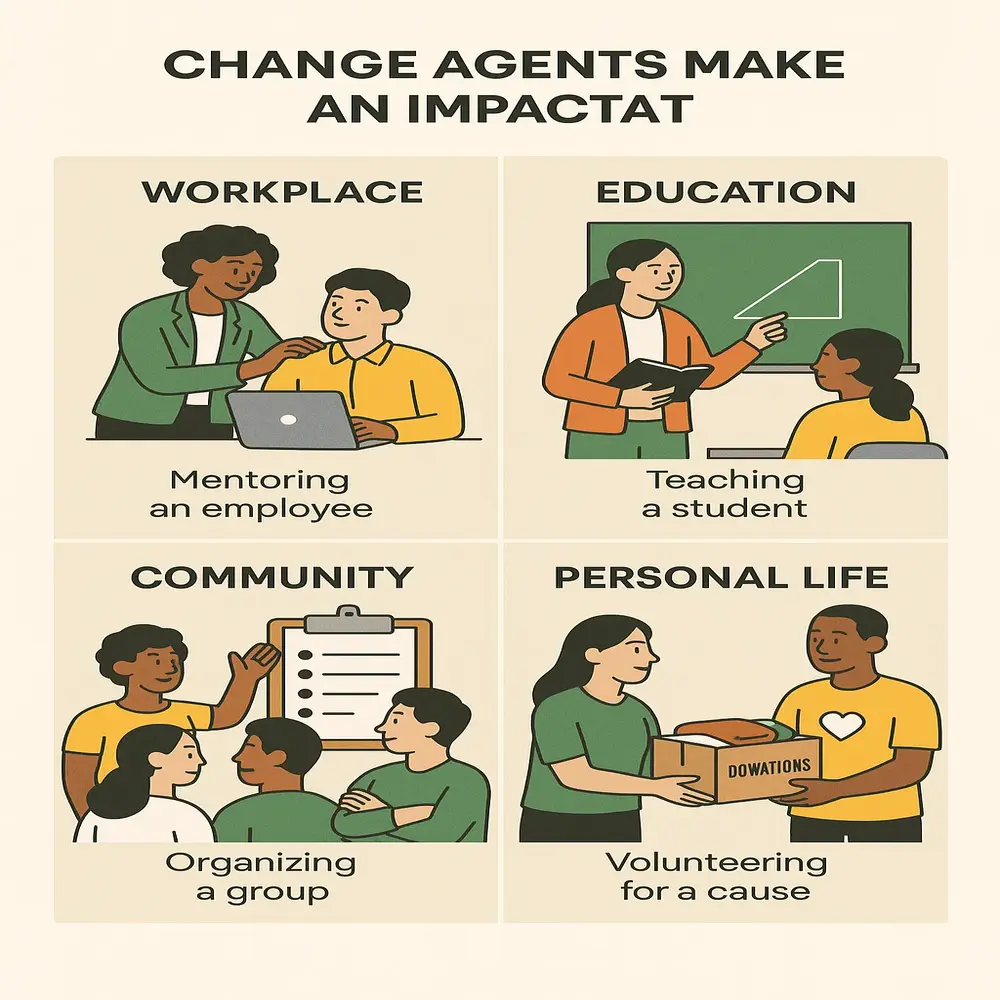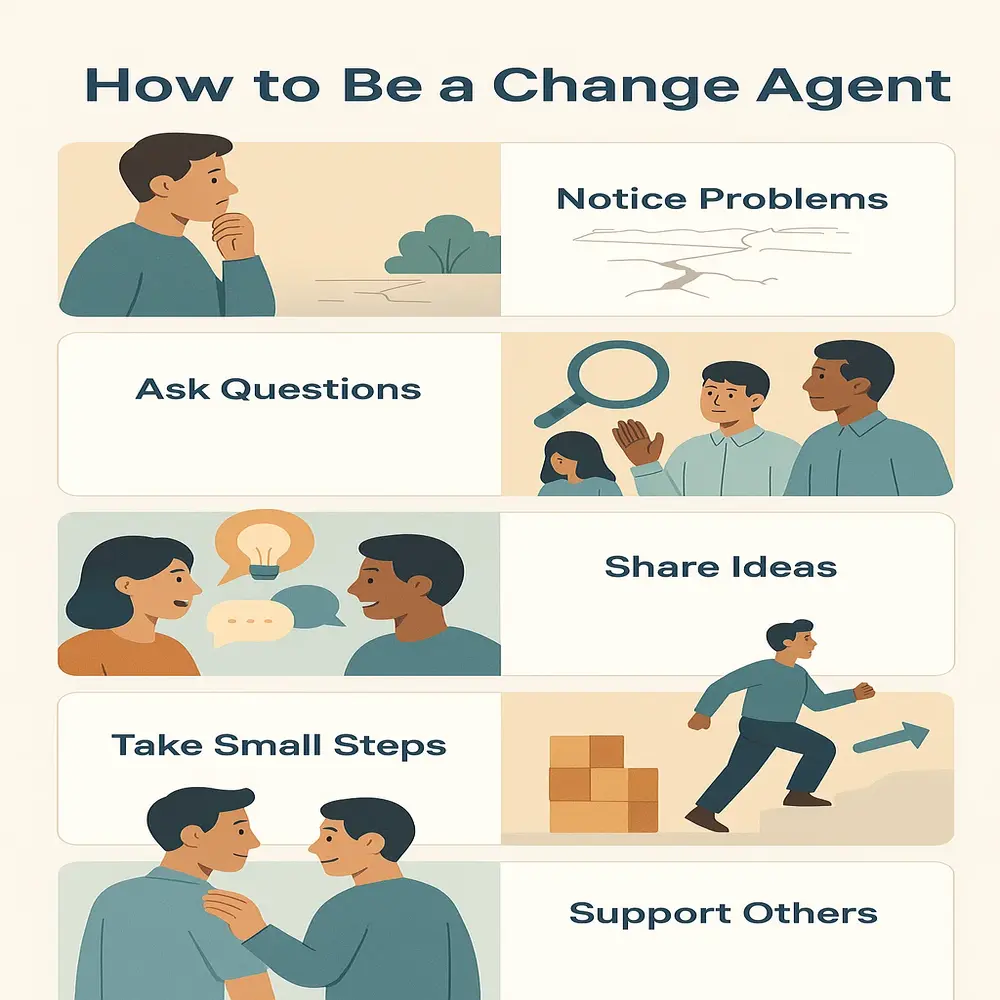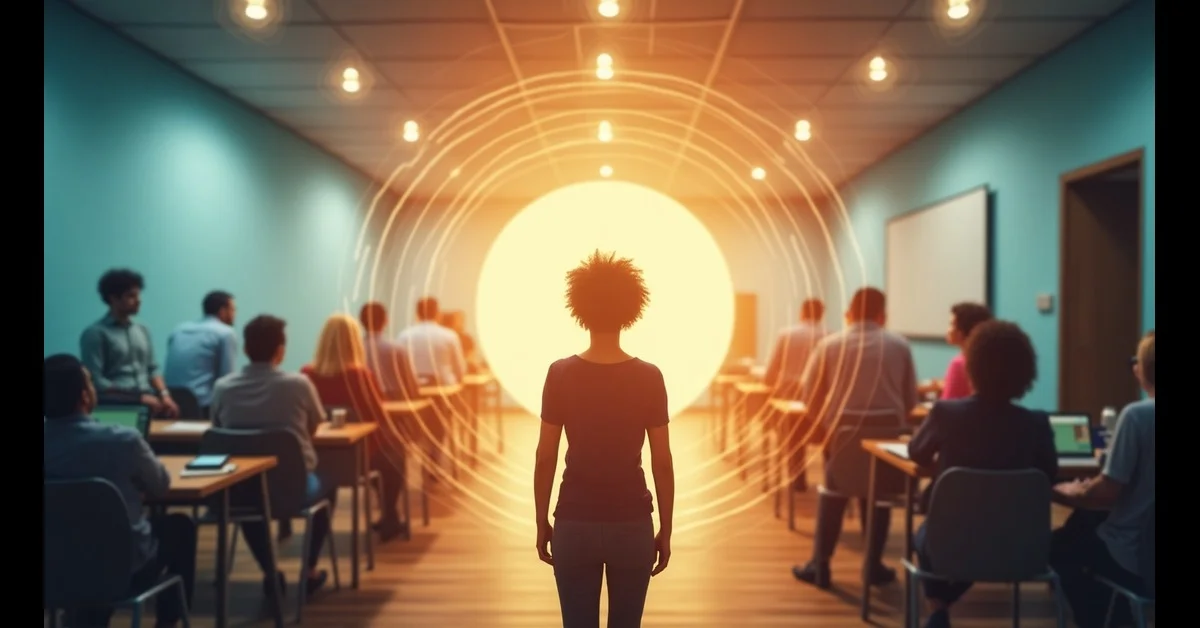In today’s fast-changing world, the idea of being a “change agent” comes up more and more. You may hear it at work, in community groups, or even in self-help books. But what does it mean? Simply put, a change agent is someone who makes change happen. This person sees a need for improvement, dares to act, and inspires others to do the same. They don’t always hold formal authority or high-ranking titles. Some of the most effective change agents are everyday people who decide not to accept things as they are.
The Power of Taking the First Step
Being a change agent doesn’t always mean starting big movements or revolutions. It can be as simple as noticing a problem and taking the first step to fix it. Change agents can be teachers who update old methods to better connect with students, employees who suggest new ways to do things at work, or citizens who help clean up their local parks. The key is that they see something worth improving and take action. They don’t just complain, they move.
The Core Qualities of a Change Agent
To understand what it means to be a change agent, it’s important to know what makes them tick. These individuals share a few common traits that help them stand out:
- Vision: They possess a strong vision and know exactly what they aim to accomplish. Even if the path is not clear yet, they know the destination.
- Courage: They are not afraid to take risks or face pushback. Change often brings resistance, but they stay strong.
- Communication: They know how to talk to people and get them on board. A change agent listens as much as they speak.
- Problem-solving: When things go wrong, they find new ways to keep going. They’re creative and flexible thinkers.
- Persistence: They don’t give up easily. They continue pressing on, even when results take time to appear.
These traits are not always natural. Many people become better at them over time. What matters most is the willingness to grow and the drive to make a difference.
Where Change Agents Work Their Magic?
Change agents exist everywhere. You’ll find them in offices, schools, homes, and communities. Let’s explore how they make an impact in different areas:
1. In the Workplace
In businesses and organizations, change agents often help teams adapt to new tools, processes, or goals. They might introduce new software, encourage better teamwork, or help others adjust to a new company direction. Instead of waiting for permission, they speak up when they recognize a better way to do something.
They also:
- Help reduce fear of change by sharing clear information
- Lead by example and inspire others to follow
- Bridge the gap between leadership and staff
2. In Education
Educators and academic leaders often serve as strong forces for positive change. They may update lesson plans to include more real-world skills or bring in digital tools to make learning fun and easy to access. A student who helps others stay motivated or starts a reading club can also be a change agent. Age doesn’t matter; the action does.
They can:
- Inspire curiosity and a love for learning
- Challenge old ways that no longer help students grow
- Promote inclusion, creativity, and respect in classrooms
3. In the Community
In local areas, change agents can lead clean-up drives, help with food distribution, or start a campaign to fix broken roads or streetlights. Community change agents often notice everyday problems and find simple ways to fix them.
They often:
- Organize people and resources for small local projects
- Use social media to raise awareness
- Create stronger connections between neighbors
4. In Personal Life
Even in families or friend groups, people can act as change agents. Maybe you’ve helped a friend quit a bad habit or encouraged your family to start a healthy routine. These small but powerful changes add up over time and show leadership in everyday life.
This kind of influence:
- Promotes healthier habits and emotional well-being
- Brings people together in positive ways
- Shows love, care, and commitment to growth

Why More Change Agents Are Needed?
The world is changing faster than ever. New technology, global issues, and social changes require us to adapt quickly. Change agents are important because they guide others through these shifts instead of letting them struggle alone. They help others feel less afraid of change and more excited by new opportunities.
More than ever, we need people who can:
- Spot what’s not working and fix it
- Help others understand and accept new ideas
- Push for fairness, inclusion, and progress
- Take action when others stay silent
Without change agents, progress slows. We often slip into routines that may no longer help us grow or improve. But with them, we move toward better systems, happier lives, and a more hopeful future.
How Can You Be a Change Agent?
Becoming a change agent doesn’t require a special degree or title. What truly matters is having the passion to create change and the courage to take action. Here’s how to get started:
- Notice problems: Pay attention to what’s broken or unfair in your world.
- Ask questions: Why is this done this way? Could it be better?
- Share ideas: Exchange your ideas with others to spark new thoughts and inspire conversation.
- Take small steps: Change often starts with one small action.
- Support others: Encourage friends or coworkers who want to make changes, too.

Remember, even small actions can create big waves. A kind word, a fresh idea, or a moment of courage can inspire others to follow your lead.
Challenges You May Face
Of course, being a change agent isn’t always easy. You may face people who don’t want change. Some may say your ideas are silly, too risky, or too new. That’s normal. Change often scares people because it means letting go of what’s familiar.
You might also:
- Feel alone or unsupported
- Hit roadblocks or delays
- Get tired or lose motivation
But don’t give up. Stay focused on your goal and remind yourself why it matters. Keep learning, adjusting, and trying. Over time, others will see your passion and begin to believe in your ideas too.



